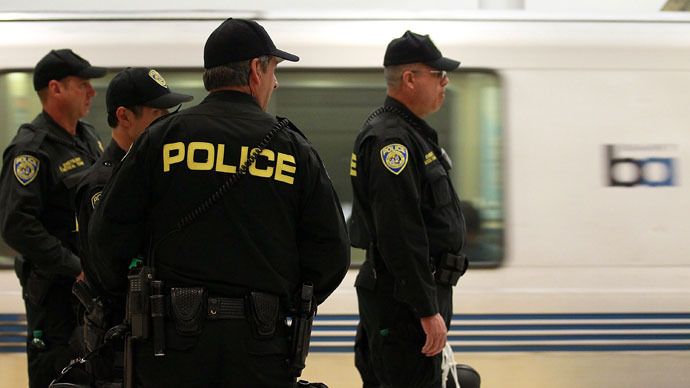ACLU sues San Francisco over warrantless cell phone search

The results of a lawsuit filed Wednesday by the ACLU of Northern California will tell whether police have the right to search a suspect’s phone for incriminating evidence. The suit follows an activist's arrest while he pitched a tent at a protest.
According to the American Civil Liberties Union (ACLU), following
Bob Offer-Westort’s arrest one of the two officers in question
began to scroll through the detainee’s text messages and read them
aloud.
The plaintiff, a longtime activist in the area, was concerned that
some of the personal content of these texts would damage his
existing relationships with local officials.
This latest lawsuit highlights the ongoing dispute between privacy
advocates and law enforcement officials.The California Supreme
Court ruled in 2011 that warrantless searches of mobile phones did
not violate the Fourth Amendment, which guards against unreasonable
searches and seizures.
California Governor Jerry Brown, in turn, cited that
precedent when he vetoed legislation which would have required
police to obtain a warrant before searching through the mobile
phones of suspects.
In the case of Offer-Westort, police began to read through his
texts prior to formal booking, and allegedly did so for weeks until
the phone was returned to him months after the arrest.
The ACLU aims to use this latest lawsuit to demonstrate that such
seizure and search violates California’s constitution.
Marley Degner, an attorney whose firm is providing pro bono
services in the case, believes that cellphones are now
“virtually home offices that contain personal, professional and
financial information about their owners and others.”
As such, the suit will seek to make the case that warrantless
searches of cell phones not only violate the rights of those
arrested, but also those of family, friends, co-workers and anyone
else whose information may be held by the device. No hearing date
has been set thus far for this case.
On the federal level, lawmakers from both parties have attempted to
introduce reforms to the Electronic Communications Privacy Act of
1986 to ensure law enforcement obtain warrants before searching
electronic communications or location data. Late last year,
representatives Zoe Lofgren (D-Calif.), Ted Poe (R-Texas) and Suzan
DelBene (D-Wash.) introduced legislation that would have amended
ECPA with greater privacy guarantees, though the bill failed to
advance to the Senate.












